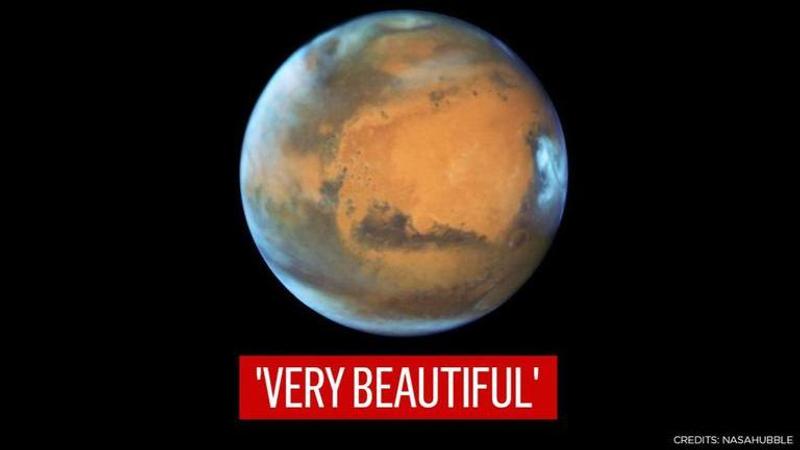Published 14:04 IST, February 19th 2021
NASA shares images of red planet to celebrate Perseverance Rover's landing on Mars
After NASA’s Perseverance rover touched down on the surface of the Red Planet at 3:55 pm Eastern Standard Time, NASA's Hubble Space Telescope joined in the buzz

After NASA’s Perseverance rover touched down on the surface of the Red Planet at 3:55 pm Eastern Standard Time, NASA's Hubble Space Telescope joined in the buzz as it shared two images of the red planet on its official Instagram handle. The Perseverance rover reached Mars after travelling through deep space for more than 200 days. NASA’s Jet Propulsion Laboratory in Southern California announced the confirmation of the successful touchdown.
'Powerfully cool'
“Our view of Perseverance. We’ve observed Mars many times from afar, but now NASA's Perseverance rover begins its mission to explore the Red Planet. Congratulations on a successful landing!”, read the caption of the images. The first image shows the planet from a good distance. The second image shows the first image sent by Perseverance from its home, Mars. Let’s have a look at the stunning images.
Stunned on the beauty of the red planet, netizens took over the comment section. One Instagram user wrote, "Yay for Mars! Congrats, NASA". Another person wrote, "Your rover will be successful". Since uploaded the images have managed to gather 224,251 likes. Instagram users can be seen leaving heart emojis in praise of the red planet.
Perseverance rover, which has an advanced onboard laboratory, will study the Martian surface in search of any form of life. The rover has landed near Jezero Crater, which apparently had its own river delta and was filled with water some 3.5 billion years ago. The rover will look for life around the 45 kilometres-wide crater. The mission aims to bring back samples to Earth for further analysis because of more sophisticated labs here. The probe was launched on July 30 during the crucial small window that opened for launch to Mars last year.
(Image Credits: Instagram/Nasahubble)
Updated 14:01 IST, February 19th 2021




